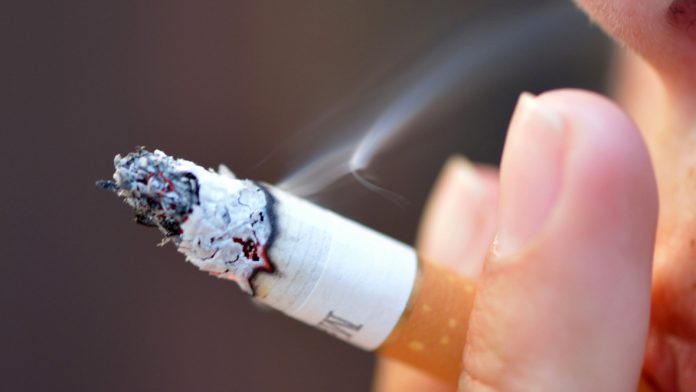The Indian government is reportedly asking the Supreme Court to apply a rare doctrine to the country’s $11 billion tobacco industry which will affect its legal right to trade, as a part of its efforts to deter tobacco companies from challenging tough new regulations.
Making the request for the first time, the Central government has asked in its petition that tobacco be classified as “res extra commercium”, a Latin phrase that means “outside commerce ,citing court filing by the Health Ministry on Jan. 8.
If the government’s application is successful, then there would be far reaching consequences for the tobacco industry. It will eliminate the industry’s legal standing to trade and give the authorities more leeway to impose restrictions.
Tobacco Worse than Alcohol
An earlier application of the doctrine by the Supreme Court to alcohol in the 1970s allowed at least two Indian states to ban it completely and has enabled courts to take a stricter stance on liquor regulations. Constitutional law experts believe that similar things can happen with tobacco if a similar ruling was made.
Government counsel R. Balasubramanian, appearing on behalf of the Ministry of Health in the case said that the effects of tobacco are “much more than even alcohol,” adding that the designation would be a “fillip to the drive against tobacco.”
Balasubramanian has clarified that the government is not considering banning tobacco and the doctrine is only being used to limit the industry’s legal rights.
Government Seeking To Discourage Consumption
The government has been taking several measures in recent years to curb tobacco consumption which kills over 900,000 person in India each year. The measures include raising tobacco taxes, pushing smoking cessation campaigns and enacting laws that mandate covering most of the package in health warnings.
But last month a Karnataka court set aside the labeling rules after the tobacco industry successfully showed that the rules were “unreasonable” and also were in violation of its “right to trade”.
The government has appealed the ruling in the Supreme Court which has put the Karnataka court order on hold. The case is expected to be heard on March 12.
In its filing, the government has added the “res extra commercium” measure as it wants to stop the industry from filing similar cases again, Balasubramanian said. The government has stated that it must have the power “to regulate business and to mitigate evils” in order to safeguard public health.
Senior lawyer Sajan Poovayya, representing top Indian cigarette makers ITC Ltd and Godfrey Phillips, has argued that the industry’s legal rights would be highly limited if the court applies the doctrine to tobacco.
Poovayya has said that he would fight the government’s argument “tooth and nail” and show to the court that eliminating the industry’s right to trade would end up imperilling millions of Indian farmers who depend on tobacco for their living. Currently around 45.7 million people in India depend on tobacco for their living according to industry estimates.
He also noted that there was a “need to look at the interest of those” already in the sector, adding that tobacco is “not destructive to health”.
A Global Precedent If Successful
The labeling rules for tobacco, which requires around 85 percent of a cigarette pack’s surface be covered with health warnings, has been a bone of contention between the government and the tobacco industry since its enforcement in 2016.
The industry has shut down factories across the country in protest for a brief while and filed several legal cases challenging the rules.
According to the Union Health Ministry the stringent health warnings on packages helps reduce consumption of tobacco by educating people on its ill-effects. A government survey conducted last year found that 62 percent of cigarette smokers have thought of quitting as a result of the warning labels on the packets.
Mary Assunta, a long-time tobacco control advocate and a senior policy advisor at the Southeast Asia Tobacco Control Alliance, has said she has never known of a country applying the “res extra commercium” doctrine to tobacco, but has hoped India would set a precedent.
Pratibha Jain, a partner at law firm Nishith Desai Associates and a specialist in Indian constitutional law stated that applying the doctrine would allow an outright ban on tobacco sales if a state so wished.
It would give the government complete autonomy to ban trading on tobacco and provide “constitutional cover” from future litigation, she said.





